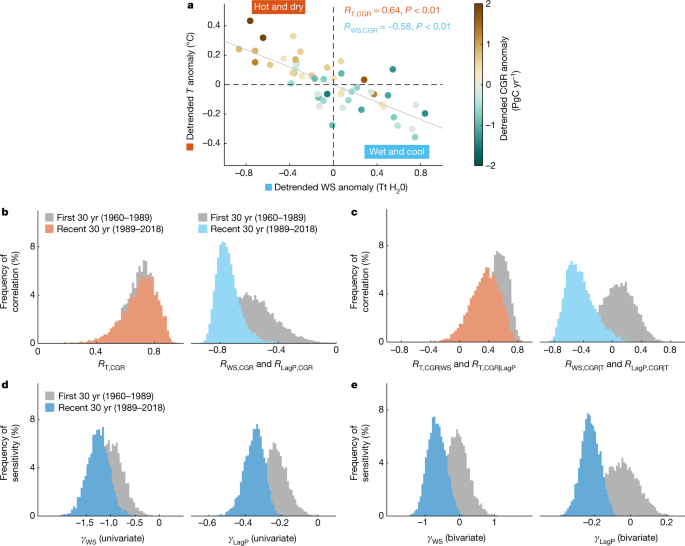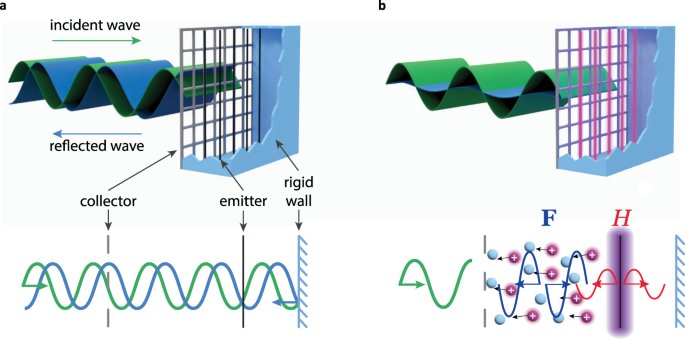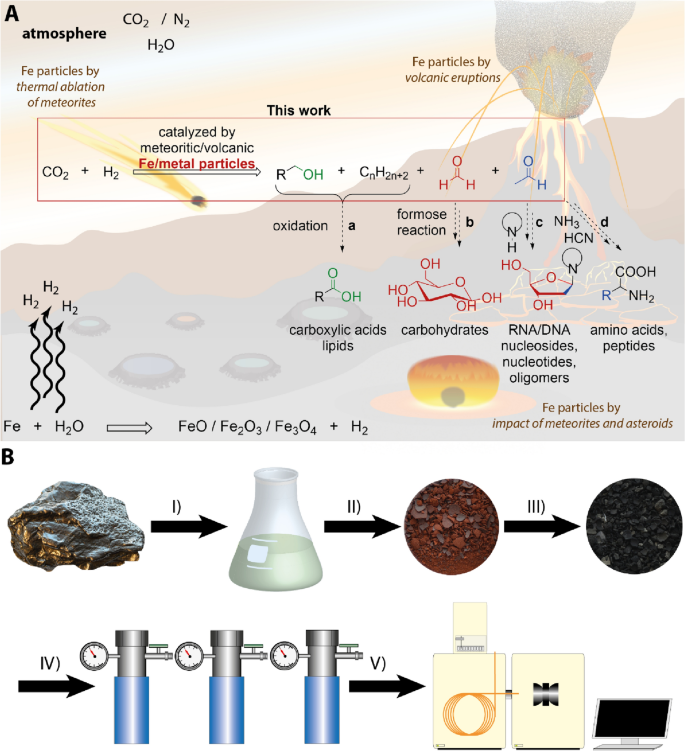2023-05-31 スイス連邦工科大学チューリッヒ校(ETHZurich)
◆これまでの気候モデルでは捉えきれていないため、陸上の炭素吸収や植生の耐乾燥性が過大評価されている可能性もある。今後の気候モデルには、乾燥が炭素循環に及ぼす影響を適切に反映させる必要がある。
<関連情報>
- https://ethz.ch/en/news-and-events/eth-news/news/2023/05/droughts-increasingly-reducing-co2-uptake-in-the-tropics.html
- https://www.nature.com/articles/s41586-023-06056-x
熱帯の水と年間CO2成長率のカップリングがますますネガティブになる Increasingly negative tropical water–interannual CO2 growth rate coupling
Laibao Liu,Philippe Ciais,Mengxi Wu,Ryan S. Padrón,Pierre Friedlingstein,Jonas Schwaab,Lukas Gudmundsson & Sonia I. Seneviratne
Nature Published:31 May 2023
DOI:https://doi.org/10.1038/s41586-023-06056-x

Abstract
Terrestrial ecosystems have taken up about 32% of the total anthropogenic CO2 emissions in the past six decades1. Large uncertainties in terrestrial carbon–climate feedbacks, however, make it difficult to predict how the land carbon sink will respond to future climate change2. Interannual variations in the atmospheric CO2 growth rate (CGR) are dominated by land–atmosphere carbon fluxes in the tropics, providing an opportunity to explore land carbon–climate interactions3,4,5,6. It is thought that variations in CGR are largely controlled by temperature7,8,9,10 but there is also evidence for a tight coupling between water availability and CGR11. Here, we use a record of global atmospheric CO2, terrestrial water storage and precipitation data to investigate changes in the interannual relationship between tropical land climate conditions and CGR under a changing climate. We find that the interannual relationship between tropical water availability and CGR became increasingly negative during 1989–2018 compared to 1960–1989. This could be related to spatiotemporal changes in tropical water availability anomalies driven by shifts in El Niño/Southern Oscillation teleconnections, including declining spatial compensatory water effects9. We also demonstrate that most state-of-the-art coupled Earth System and Land Surface models do not reproduce the intensifying water–carbon coupling. Our results indicate that tropical water availability is increasingly controlling the interannual variability of the terrestrial carbon cycle and modulating tropical terrestrial carbon–climate feedbacks.



